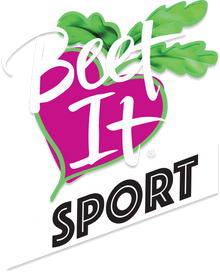
Beet juice: what does the science say?
There is enough scientific research out there to suggest that beetroot juice and nitrates improve exercise performance. However, there is also enough research to suggest that it does not.
Written by Marlena Taczarek, Nutrition BSc.
There is enough scientific research out there to suggest that beetroot juice and nitrates improve exercise performance. However, there is also enough research to suggest that it does not.
The devil is in the details. It all comes down to how these studies are carried out.
A systematic review based on 23 research articles came out in 2017, breaking down the effect of beetroot juice supplementation on cardiorespiratory endurance in athletes.
Based on these articles, a pattern is very apparent. The research studies that took a small dose of regular beetroot juice (less than 140ml) or beetroot juice that is consumed very shortly before the assessed physical activity (less than 150 minutes before), saw very little improvement in exercise performance or no difference in the assessed variables was observed.
However, the studies that provided the participants with beetroot juice for an extended period (6+ days) or consumed a higher volume of beetroot juice before the physical activity (more than 280ml) saw more promising results, with many seeing VO2max improvement and improved time to exhaustion – meaning the athletes could perform at a higher level for longer or finish a certain distance in a faster time.
The systematic review concluded that:
- Acute supplementation with beetroot juice may have an ergogenic effect on reducing VO2 at less than or equal to VO2max intensity, while improving the relationship between watts required and VO2 level, mechanisms that make it possible to enable increase time-to-exhaustion at less than or equal to VO2max intensity.
- In addition to improving efficiency and performance in various time trials in increasing time-to-exhaustion at submaximal intensities , chronic supplementation with beetroot juice may improve cardiorespiratory performance at the anaerobic threshold and VO2max intensities.
- The effects of supplementation with beetroot juice might not have a positive interaction with caffeine supplementation, mitigating the effects of beetroot juice intake on cardiorespiratory performance, however, more work is needed to confirm the results of these investigations as the number of studies analysing the effects of the combination of beetroot juice with other supplements is limited.
- Intake of beetroot juice should be initiated within 90 min before athletic effort since the peak value of NO3− occurs within 2–3 h after ingestion. At least 6–8 mmol of NO3− intake is required, which can be increased in athletes with a high level of training.
In summary, the impact of beetroot juice and nitrates on exercise performance appears to be positive, but this is highly dependent on the methodology used in the studies. While some research indicates limited benefits with small doses or immediate consumption, more promising results are observed with higher volumes and longer supplementation periods.
Acute and chronic supplementation with beetroot juice may enhance cardiorespiratory performance, including reducing VO2 at submaximal intensities and improving time-to-exhaustion.
However, more research is needed to understand the interaction with other supplements and determine the optimal timing and dosage of beetroot juice intake for different athletes and sports.
The systematic review is available to read here: https://www.ncbi.nlm.nih.gov/pmc/articles/PMC5295087/


